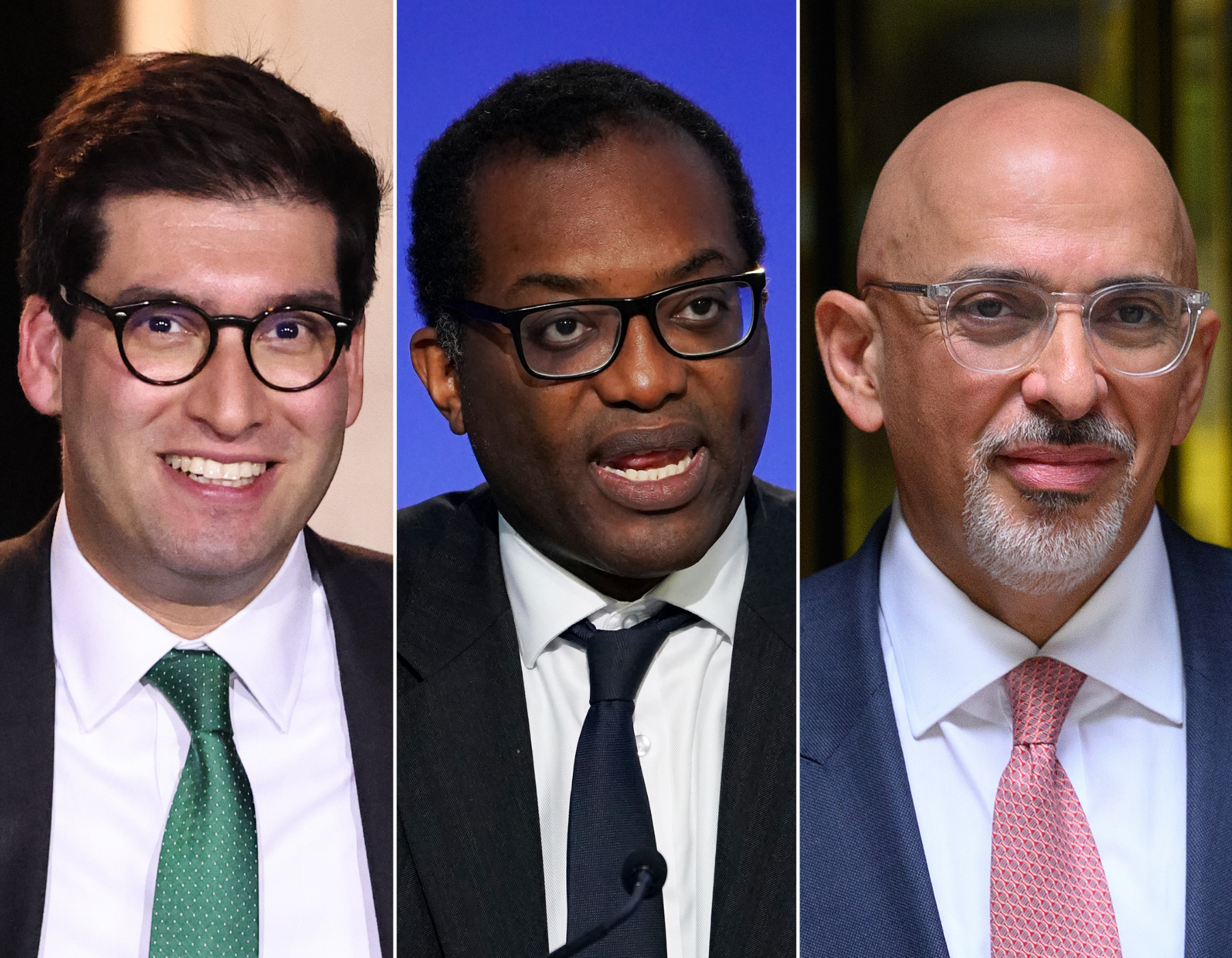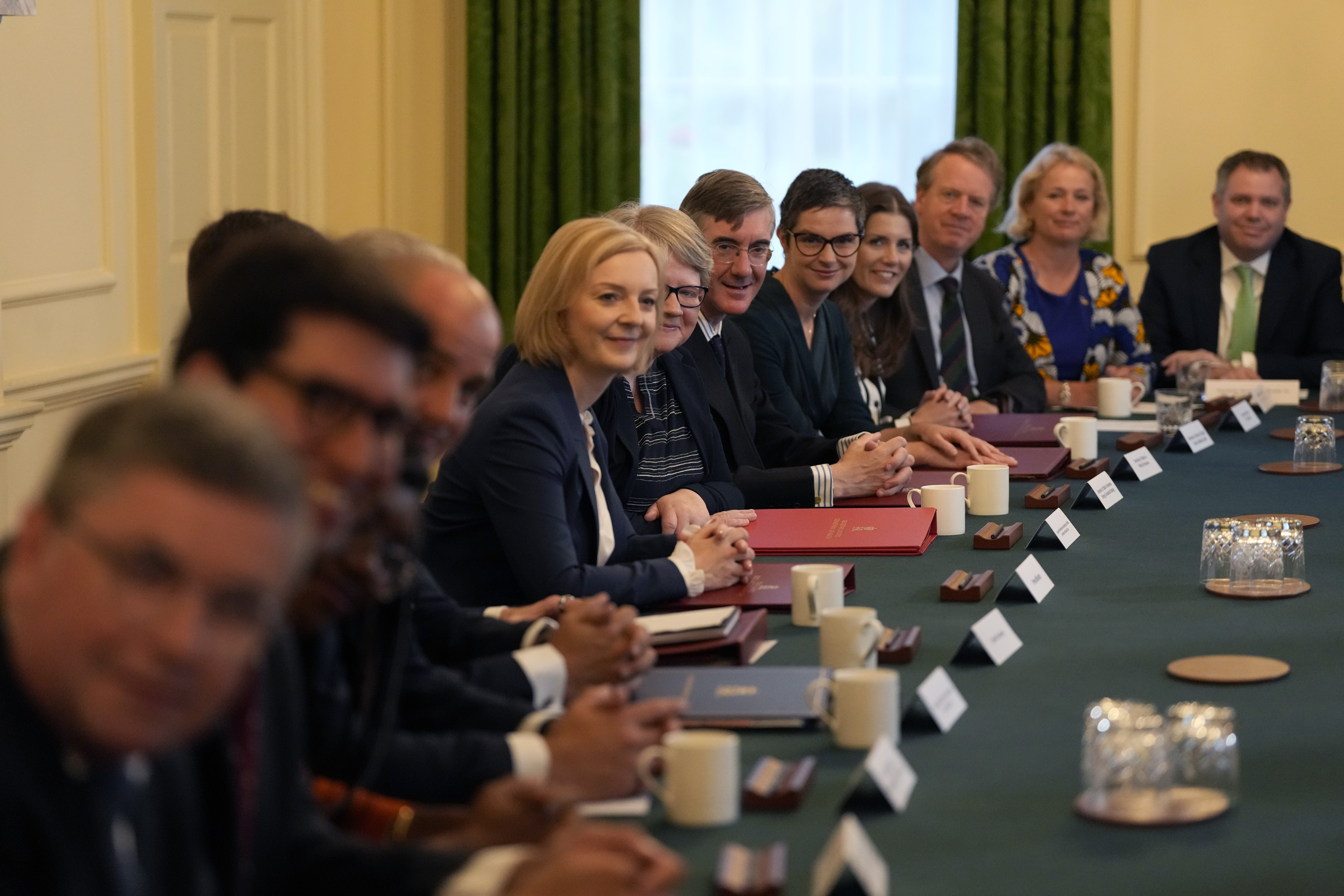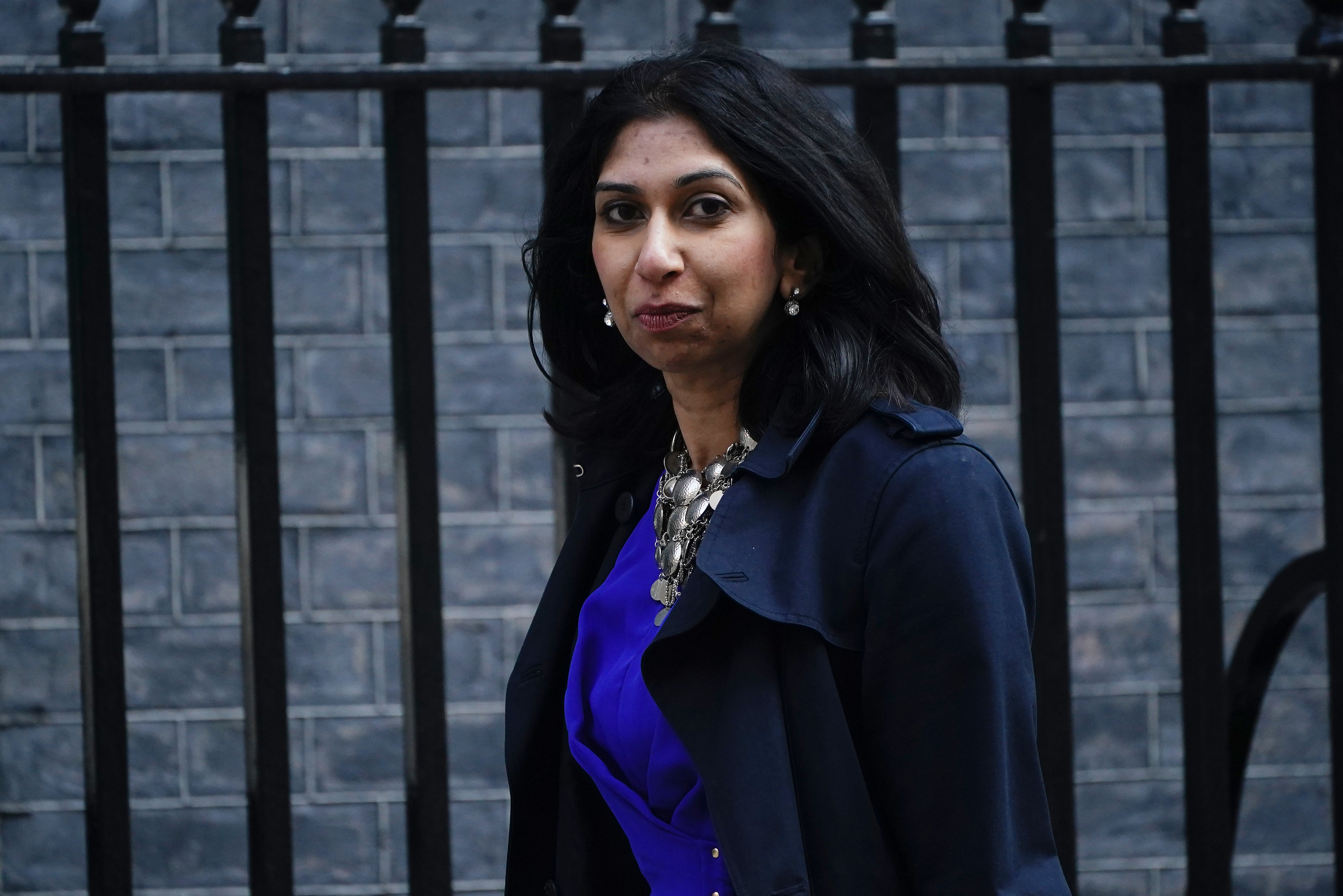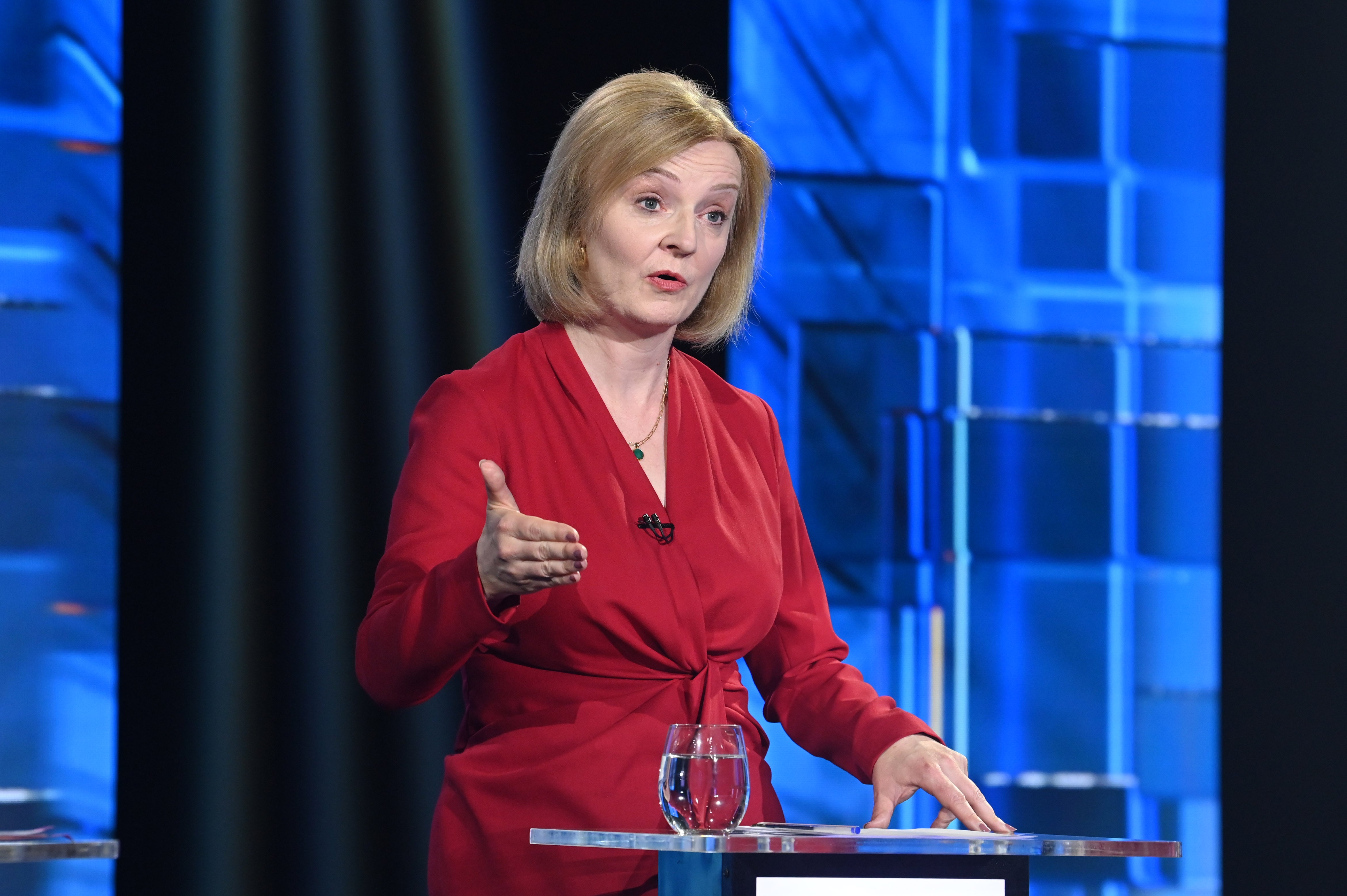Sorry to break it to you, but Liz Truss’s diverse cabinet does not mean progress
Kwasi Kwarteng himself has previously downplayed the significance of his Blackness, and we all should do the same when it comes to this ‘diverse’ cabinet


Your support helps us to tell the story
From reproductive rights to climate change to Big Tech, The Independent is on the ground when the story is developing. Whether it's investigating the financials of Elon Musk's pro-Trump PAC or producing our latest documentary, 'The A Word', which shines a light on the American women fighting for reproductive rights, we know how important it is to parse out the facts from the messaging.
At such a critical moment in US history, we need reporters on the ground. Your donation allows us to keep sending journalists to speak to both sides of the story.
The Independent is trusted by Americans across the entire political spectrum. And unlike many other quality news outlets, we choose not to lock Americans out of our reporting and analysis with paywalls. We believe quality journalism should be available to everyone, paid for by those who can afford it.
Your support makes all the difference.The new UK prime minister Liz Truss has selected a cabinet where, for the first time, a white man will not hold one of the country’s four most important ministerial positions.
Of the appointments, perhaps the most noteworthy one is that of Kwasi Kwarteng, 47, who has become Britain’s first Black chancellor – making him one of the most prominent Black politicians in the world.
James Cleverly, 53, is the first foreign secretary of Black or mixed-race heritage; his mother hails from Sierra Leone and his father is white. In the past he has spoken about being bullied as a mixed-race child and has said the party needs to do more to attract Black voters.
Meanwhile, 42-year-old Suella Braverman, whose parents came to Britain from Kenya and Mauritius six decades ago, became the third ethnic minority home secretary, where she will be responsible for police and immigration.
Kemi Badenoch – who, never forget, has been endorsed by far-right group, Britain First – was appointed as trade secretary, Nadhim Zahawi is now the chancellor of the duchy of Lancaster, Alok Sharma’s now Cop26 president and Ranil Jayawardena, a lesser-known politician of Sri Lankan heritage, has landed a role as environment secretary.
That this is the most diverse line-up of senior politicians in UK history holds some significance – but what does it really mean?
It means that a handful of Black and Asian politicians are to be congratulated, or not, on their personal achievements within the white-dominated political sphere. After all, their promotions will change nothing for Black, Asian and minority ethnic communities across Britain and it would be foolish to pretend otherwise.

I should also point out that none of the Black or Asian cabinet ministers are of Caribbean heritage, so there’s no representation in that regard for complex reasons.
Despite all this, prolific racism deniers from all walks of life are using the government’s surface-level diversity to argue that the Conservative Party’s track record on race equality is great.
But it isn’t – not when millions of Black and Asian people up and down the country are suffering as a result of the party’s policies and grappling with the fallout of the Covid-19 pandemic, healthcare inequalities, substandard housing, soaring unemployment, poverty, workplace discrimination, disparity in education outcomes.
Not when there’s an ongoing investigation within the Conservative Party over Islamophobia claims made by MP Nusrat Ghani. Shall I go on?
The royal households, upper ranks of business, the judiciary, the civil service and the army are all still predominately white. And despite the party’s diversity campaign, only six per cent of the Conservative membership base – an estimated 180,000 to 200,000 people – are from minority backgrounds.
Be clear: diversity is not the same as anti-racism.

Representation is one thing, equality and inclusion are quite another. The latter is about dismantling structural inequalities, which affect the many and not just a few. And, respectfully, it is something that brown faces in high places aren’t going to fix.
The prospect of change comes down to who these people are and, more importantly, what their policies are saying. The new cabinet members have given little indication that they are actually interested in dealing with the societal problems that blight the lives of many from Black, Asian and ethnic minority communities.
For example, they’ve all voted for stricter asylum and strong enforcement of immigration rules, despite themselves hailing from parents who migrated to the UK from other countries.
Many have stoked the fires of so-called “culture wars” which, actually, have nothing to do with culture and everything to do with gaslighting communities who bear the brunt of systemic inequalities, pitting everyone against racialised communities.
Mr Kwarteng himself has previously downplayed the significance of his Blackness (and we all should do the same when it comes to this “diverse” cabinet, to be honest). In 2016, he wrote that it was “exciting” to have more MPs from diverse ethnic and cultural heritages in parliament, “but we must not expect them all to be mouthpieces for their ethnic communities.”
All of the above is, in a nutshell, why the average Black and Asian person on the street will tell you that these appointments don’t immediately fill them with hope for a better tomorrow. In fact, there’s a consensus that things will actually get worse under this new government.
Why? These politicians have all gone above and beyond to not only chart their own paths to prominence, they’ve done this while, by and large, denying the impact and existence of racism and Afriphobia.

In witnessing their glorious ascension, aspiring politicians may glean how their own careers may benefit if they follow suit. A fine example? I think not.
Moreover, the intersection between race and class is all too often ignored within discussions around achievement and inequalities. Yet it’s hard to ignore the fact that, like their white counterparts, all of the diverse cabinet members hail from privileged backgrounds and attended private schools. This, no doubt, helped to give them a leg up in life which isn’t afforded to everyone and helped to propel them into the corridors of power.
What I will also say is this: Labour’s track record on leadership diversity is bad. Plus, right now it is facing mutiny from Black MPs over the party’s public response to the Forde report, which exposed Afriphobia in its ranks.
Since its inception in 1900, Labour has only had one ethnic minority secretary of state, and currently only has two shadow secretaries who aren’t white.
While one in four Labour MPs are from an ethnic minority background, just three Labour MPs are Black men. Since 1987, only four Black male MPs have been elected. Appalling figures, to be sure.
Just as Thatcher’s tenure as Britain’s first-ever female PM didn’t change much for women in Britain, this new, melanated cabinet does not signal the progress some would have us believe.
History has told us that a new Tory government just means “business as usual” – and this will unlikely change under the leadership of Liz Truss, who recently denounced the focus on race, sexuality and gender issues as “tools of the left”.
Glad we’ve cleared this up. Now, hopefully the agenda will be squarely focused on more pressing things.
Join our commenting forum
Join thought-provoking conversations, follow other Independent readers and see their replies
Comments